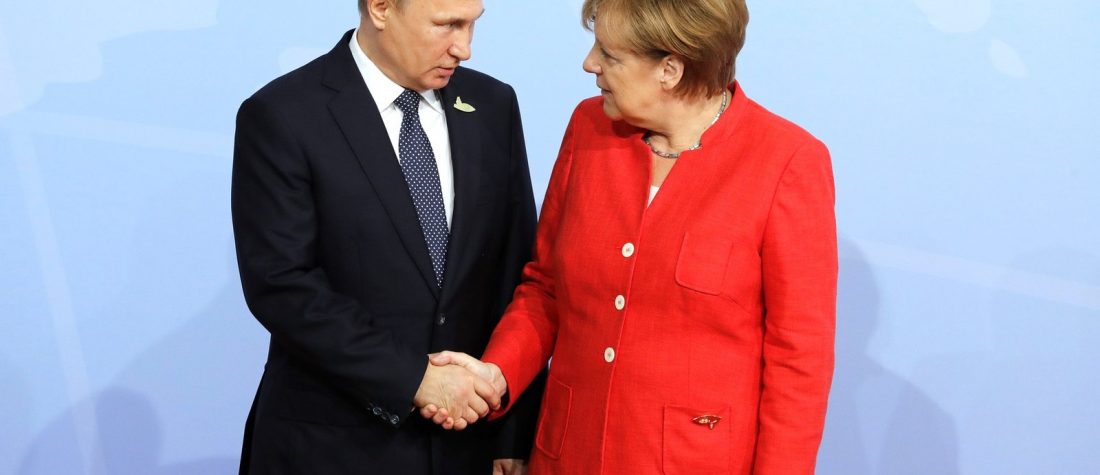Russia’s recent military losses and withdrawals in Ukraine have prompted an intense discourse about the perspectives of a post-war, and perhaps, post-Putin Russia. Although an eventual change in the Kremlin could be expected, it is still hard to predict how it might look like. Even if the United States, the European Union and several European governments, including the British, French, German or Polish have voiced their support to Ukraine as long as it takes to defeat Russia, we have to remember that we are not in 1945 and Russia is not Hitler’s Germany. Ukrainian victory will certainly not mean that Western powers will have absolute control over what is going to happen to the country with the largest territory in the world. This fact gives some uncertainty to all projections. Any discussion about Russia’s future leadership may be premature, but it is high time we pinpointed the issues that can shape Europe’s policy towards Russia.
Foreign policy planning has never been a strong asset of the European Union
The difficulty of reaching a consensus among the different interests of its Member States and the complexity of the EU’s decision-making process often resulted in its failure to set the agenda in world politics. The ongoing war in Ukraine seems to affect this deficiency and the threat coming from Russia has contributed to the creation of a more uniform European foreign policy, marked by stricter sanctions, military aid and a single rhetoric in the relations towards Moscow. However, the ability to find a common voice in a defensive situation does not at all mean that this attitude can still prevail once the war is over and the European countries will have to switch to a more proactive role vis-à-vis Russia.
Certainly, the attempt to maintain a single European voice in foreign policy will be a serious test for the community. Different Member States’ approaches are not always easy to reconcile. Aspiring to a leading role in European foreign policy, France has always seen Russian relations as its opportunity to be a step ahead of the others in the community, while Germany was often criticised for its economy-based approach towards Russia, especially when it came to energy reliance. Despite the fact that now is a time for moderation, it is hard to believe that these reflexes, already deeply rooted in these two countries’ views on diplomacy, may soon disappear. At the same time, Poland and the Baltic states now feel more reassured than ever in their perception of Russia as a hostile nation. Although the political and economic weight of the two groups, the pragmatics and the idealistics, is hard to compare, such a difference of opinions can surely be enough to prevent the EU from finding a common position in a system that is based on consensual decision-making. However, the lack of consensus among Member States with contrasting views on Russian relations and the inability either to reconcile opinions or to enforce a single policy could lead the community back to its pre-war situation: an EU foreign policy with weak legitimacy and Member States that go on their own way. This would be a failure of the unity and a sign that the EU will not be able to stand up in world politics as a serious actor – enormous disappointment for the friends of a stronger EU.
Nevertheless, when it comes to France, Germany and other Member States unlikely to advocate for strict isolation of Russia on an emotional basis, there is still one question left. What can Russia offer to them? Whenever Russian economic relations are discussed, the first question that comes up is energy. Still far from the ultimate solution, the EU has nonetheless started to look for alternatives.
Europe is already importing energy from other sources. However, moving forward with renewable and green energy in the long run has already been a major objective of the community before the war and the current situation has justified it. In this case, ambitions to tackle climate change and increase Europe’s strategic autonomy coincide perfectly. It is clear that the longer it takes to end the war, the less demand Europe will have for Russian energy.
Even though EU countries might lose their interest in Russia as a source of energy, it will certainly not be the case with Russian markets. Abandoned by many European companies and seriously hit by the sanctions, Russia’s economy is not going through its best period. It has already slid in recession in the third quarter of 2022 as GDP dropped by 4 percent and projections show the decline will be permanent in the next years, contracting by 3,4 percent in 2022 and 2,3 percent in 2023 Currently, it is impossible to predict how long the sanctions will remain in force, but it is sure they will not be abandoned soon. At the same time, we can assume that once in the future the sanctions are lifted and there is a certain level of legal stability, Russia will be a promising market for European and western companies as it is a large economy with a huge value of trade with the EU before the current measures. Nevertheless, this question leads us back to the first issue: who will set the agenda of the EU in Russian relations? The economically more advanced Western member states, like France and Germany with less intense historical aversions towards Russia but bigger political industrial interests; or the states like Poland and the Baltics with no such interests but a cautious approach and many painful memories?
Whether Europe will be able to move and deal with the Russian question together, or the unity will be broken as soon as the war is over – this will be a true litmus test for the EU’s evolution.


